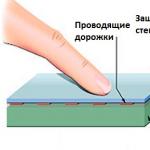Netherlands, USA
creator of the Python programming language
Biography
Van Rossum was born and raised in the Netherlands, where he graduated from the University of Amsterdam with a degree in mathematics and computer science in 1982. He then worked at various research institutes, including the Dutch Center for Mathematics and Informatics (Amsterdam), (USA) and the Corporation for National Research Initiatives (USA).
In 2001, van Rossum received a Free Software Award. In 2002 he received the award from the Netherlands Association of UNIX Professionals (NLUUG). In 2006, he was recognized as a "Distinguished Engineer" by the Association for Computing Machinery.
In December 2005, van Rossum was hired by Google, where he developed the Mondrian code-review web application in Python. He also took an active part in the development by Google of the Google App Engine website and web application hosting service. December 7, 2012 was my last day at Google. Started working at Dropbox on January 1, 2013.
Personal life
Guido van Rossum is the brother of Just van Rossum, a type designer and programmer. Yust created the font used in the "Python Powered" logo.
Guido currently lives in California with his American wife Kim Knapp and their son Orlijn.
See also
Write a review of the article "Van Rossum, Guido"
Notes
Links
- on Blogger.
Excerpt characterizing Van Rossum, Guido
“I don’t know anything,” said Pierre.– I know that you were friends with Natalie, and that’s why... No, I’m always friendlier with Vera. Cette chere Vera! [This sweet Vera!]
“Non, madame,” Pierre continued in a dissatisfied tone. “I didn’t take on the role of Rostova’s knight at all, and I haven’t been with them for almost a month.” But I don't understand cruelty...
“Qui s"excuse - s"accuse, [Whoever apologizes, blames himself.] - Julie said, smiling and waving the lint, and so that she had the last word, she immediately changed the conversation. “What, I found out today: poor Marie Volkonskaya arrived in Moscow yesterday. Did you hear she lost her father?
- Really! Where is she? “I would very much like to see her,” said Pierre.
– I spent the evening with her yesterday. Today or tomorrow morning she is going to the Moscow region with her nephew.
- Well, how is she? - said Pierre.
- Nothing, I’m sad. But do you know who saved her? This is a whole novel. Nicholas Rostov. They surrounded her, wanted to kill her, wounded her people. He rushed in and saved her...
“Another novel,” said the militiaman. “This general elopement was decidedly done so that all the old brides would get married.” Catiche is one, Princess Bolkonskaya is another.
“You know that I really think that she is un petit peu amoureuse du jeune homme.” [a little bit in love with a young man.]
- Fine! Fine! Fine!
– But how can you say this in Russian?..
When Pierre returned home, he was given two posters by Rastopchin that had been brought that day.
The first said that the rumor that Count Rostopchin was prohibited from leaving Moscow was unfair and that, on the contrary, Count Rostopchin was glad that ladies and merchant wives were leaving Moscow. “Less fear, less news,” the poster said, “but I answer with my life that there will be no villain in Moscow.” These words clearly showed Pierre for the first time that the French would be in Moscow. The second poster said that our main apartment was in Vyazma, that Count Wittschstein defeated the French, but that since many residents want to arm themselves, there are weapons prepared for them in the arsenal: sabers, pistols, guns, which residents can get at a cheap price. The tone of the posters was no longer as playful as in Chigirin’s previous conversations. Pierre thought about these posters. Obviously, that terrible thundercloud, which he called upon with all the strength of his soul and which at the same time aroused involuntary horror in him - obviously this cloud was approaching.
“Should I enlist in the military and go to the army or wait? – Pierre asked himself this question for the hundredth time. He took a deck of cards lying on his table and began to play solitaire.
“If this solitaire comes out,” he said to himself, mixing the deck, holding it in his hand and looking up, “if it comes out, it means... what does it mean?” He didn’t have time to decide what it meant when a voice was heard behind the office door the eldest princess asking if she could come in.
“Then it will mean that I have to go to the army,” Pierre finished to himself. “Come in, come in,” he added, turning to the prince.
(One eldest princess, with a long waist and a petrified face, continued to live in Pierre's house; the two younger ones got married.)
“Forgive me, mon cousin, for coming to you,” she said in a reproachfully excited voice. - After all, we finally need to decide on something! What will it be? Everyone has left Moscow, and the people are rioting. Why are we staying?
“On the contrary, everything seems to be fine, ma cousine,” said Pierre with that habit of playfulness that Pierre, who always embarrassedly endured his role as a benefactor in front of the princess, acquired for himself in relation to her.
- Yes, it’s good... good well-being! Today Varvara Ivanovna told me how different our troops are. You can certainly attribute it to honor. And the people have completely rebelled, they stop listening; My girl started being rude too. Soon they will start beating us too. You can't walk on the streets. And most importantly, the French will be here tomorrow, what can we expect! “I ask one thing, mon cousin,” said the princess, “order me to be taken to St. Petersburg: whatever I am, I cannot live under Bonaparte’s rule.”
Guido van Rossum is a Dutch programmer who is best known as the creator of one of the most simple languages programming for today, Python. It was also Guido who first used the humorous title of Benevolent Dictator For Life.
Guido van Rossum was born on January 31, 1956 in the Netherlands. Since childhood, the boy was interested in technology and after graduating from school he entered the University of Amsterdam. In 1982, he received a master's degree in mathematics and computers. After that, Guido worked at various universities and computer laboratories in both Europe and the United States.
In 1989, he began working with the ABC programming language, as well as operating system UNIX. As Guido himself says, the idea of creating the Python language came by chance: “In December 1989, I was looking for a project that would become a hobby for the Christmas holidays. The office with all the equipment did not work and, without having necessary resources, I started to finalize ABC, but throughout the work I didn’t think that something serious could turn out.”
Python differed from other programming languages in its simplicity, open source, allowing any user to make their own adjustments, and simplified use of English. Despite the fact that the commands were somewhat different from the languages popular at that time, programmers easily mastered the language and after just a few days they could freely use it in their work. Among the corporations that use this programming language are Google, Yahoo!, CERN, NASA and many others. Many popular programs are also written in Python, for example, the free office suite LibreOffice. Today, several more programming languages have been created on its basis, but they are not so popular.
As the developer of the language, Guido adhered to several rules that largely changed the modern face of the computer industry. Thus, he advocated the use open source, the use of simplified English, which allowed programmers from other countries not to waste time on closely studying the language, and the brevity of the code, its convenience for daily use.
For some time, Guido worked at Google, creating the Mondrian system, written, as you might guess, almost entirely in Python. In December 2012, the developer joined the team of one of the most popular cloud services- Dropbox.
Since the creation of the language, Guido has been awarded various prizes many times; Thus, in 2001 he received an award for his contribution to the development of free software from the Free Software Foundation, and in May 2003 received the NLUUG Award.
Guido devotes his free time from work to family and self-education. He is a big fan of the Monty Python's Flying Circus series, and the Python programming language was named after this show.
Best of the day
| Man with dolphin tattoo |




